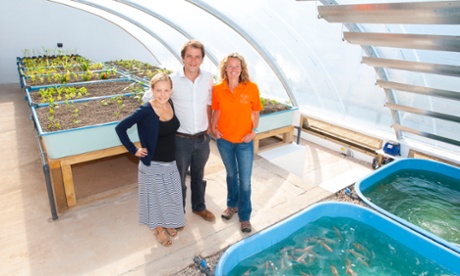The US will press ahead with biofuels production, the deputy secretary for agriculture has said, despite increasing concerns over a global food crisis, and calls from campaigners to prioritise grain for human consumption over its use as a fuel.
Jewel Bronaugh, the deputy secretary of agriculture, said US farmers could continue to produce biofuels without harming food production. “We are keeping food security top of mind, but at the same time we also want to remain steadfast in the support and promotion of biofuel,” she told journalists in London, where she met the UK government to discuss a possible trade deal and cooperation on food issues.
She said biofuels could help to reduce the need for fossil fuels, and thus help to tackle the climate crisis, and were important in keeping down the price of fossil fuels. “We know they [biofuels] have a significant positive impact, not only on climate change, but on the affordability of gas [petrol], which is very important for the world economy,” she said.
“There are also opportunities for increasing jobs – a lot of significant benefits there, which we feel are important. We will continue to promote biofuels as a sustainable fuel, especially at a time when gas prices are so high,” she added.
The US has for years been the world’s biggest producer of ethanol for use as a transport fuel, usually blended with petrol and distilled from maize, and one of the biggest producers of biodiesel, from oils including soya.
Joe Biden is facing a tough set of mid-term elections for the US Congress this autumn. The rising cost of living, higher fuel prices and concerns over the economy are causing his team disquiet as they try to avoid a pummelling in the polls.
Many US farmers benefit from biofuel production, which offers them an increased market for their corn and oil. Removing or reducing that market would be highly controversial in many key farming states.
Bronaugh said US farmers were efficient and could produce both food and fuel. “We feel like our farmers are efficient enough to produce corn for food and corn to turn to ethanol. We are doing everything we can do to promote the highest productivity,” she said.
Bronaugh’s robust defence of biofuels came as experts and green campaigners raised the alarm over the diversion of food resources into fuel capacity at a time when many developing countries are facing widespread hunger, and in developed countries food prices are rising sharply. The causes of the food price rises are complex, including the depletion of reserves during the pandemic, rising fuel costs as a result of the Ukraine war, and the impact of extreme weather, driven by the climate crisis.
But biofuels are also having an impact, according to two studies published this week. One, by the Transport and Environment campaign group, found that the EU and the UK were pouring 19m bottles of cooking oil into petrol engines each day, despite severe constraints on production owing to the Ukraine war.
The other, by the Green Alliance thinktank, found that if the land abroad used to grow bioethanol for use in the UK alone were given over to food crops instead, an extra 3.5 million people a year could be fed, lowering the impact on undernourishment caused by the Ukraine war by about 25%-40%.
The UK government is understood to be considering reducing the mixing of biofuel with fossil fuel in response to the global food price rise.
Bronaugh also said she had met George Eustice, the UK environment secretary, to discuss post-Brexit trade. She confirmed that Eustice had proposed that US farmers could adhere to voluntary standards on animal welfare as a way of smoothing the path to imports of US farm products to the UK.
However, she insisted that US standards of animal welfare and farm products were already high, and not in need of improvement. “We feel very strongly about our standards, but are always willing to talk and to hear ideas,” she said.








